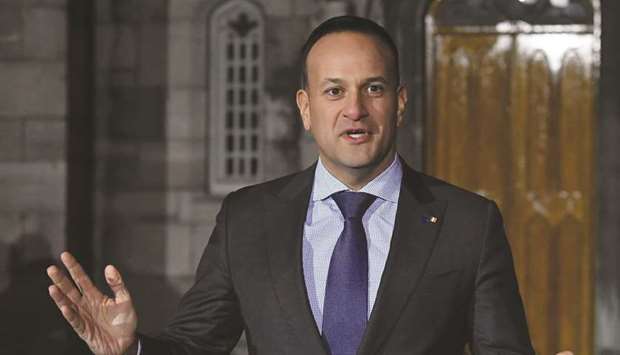Ireland’s taoiseach, Leo Varadkar, has said Dublin will vote against an European Union trade deal with South American nations unless Brazil takes action to stop the burning of the Amazon.
Varadkar said his government would oppose the Mercosur trade agreement with four Latin American countries – Brazil, Argentina, Paraguay and Uruguay – that was clinched in June after two decades of negotiation but has not yet been ratified.
“There is no way that Ireland will vote for the EU-Mercosur free trade agreement if Brazil does not honour its environmental commitments,” Varadkar said.
Ireland would need other EU members to help form a blocking minority to stop the deal being passed, but it could be the most feasible form of international leverage on President Jair Bolsonaro to replace protections he has removed and curb the destruction of the rainforest and the lives of indigenous people of the Amazon.
The French president, Emmanuel Macron, has declared the Amazonian fires an international crisis, adding that the issue would be at the top of the agenda at the G7 summit this weekend in Biarritz.
However, Bolsonaro is likely to be defended by Donald Trump, who views the far-right Brazilian leader as a close regional ally and has ignored the science underlying the climate crisis.
Paris has not said whether it would rethink the Mercosur agreement.
Germany has also not mentioned the fate of Mercosur, but it has – along with Norway – halted donations to the Brazilian government’s Amazon fund.
The UK, eager for post-Brexit trade opportunities, has so far refused to condemn Bolsonaro’s policies in the Amazon.
The trade minister, Conor Burns, was in Brasilia on Wednesday and refused to comment directly, reportedly telling the Brazilian press that the Bolsonaro government had “legitimate ambitions to bring prosperity to its people”.
Varadkar described as “Orwellian” Bolsonaro’s efforts to blame environmental groups for the wildfires consuming the Amazon.
He added: “There is no way we can tell Irish and European farmers to use fewer pesticides, less fertiliser, embrace biodiversity and plant more of their land and expect them to do it, if we do not make trade deals contingent on decent environmental, labour and product standards.”

Varadkar: There is no way we can tell Irish and European farmers to use fewer pesticides, less fertiliser, embrace biodiversity and plant more of their land and expect them to do it, if we do not make trade deals contingent on decent environmental, labour and product standards.
